On March 3, 2025, Pulat Bobojonov was dismissed as Uzbekistan’s Minister of Internal Affairs after 7.5 years in office. He was replaced by Aziz Tashpulatov, head of the Tashkent City Internal Affairs Department, making him the sixth minister in the system. Daryo explores the key figures who have led Uzbekistan’s internal affairs system since independence and the impact of their tenure.
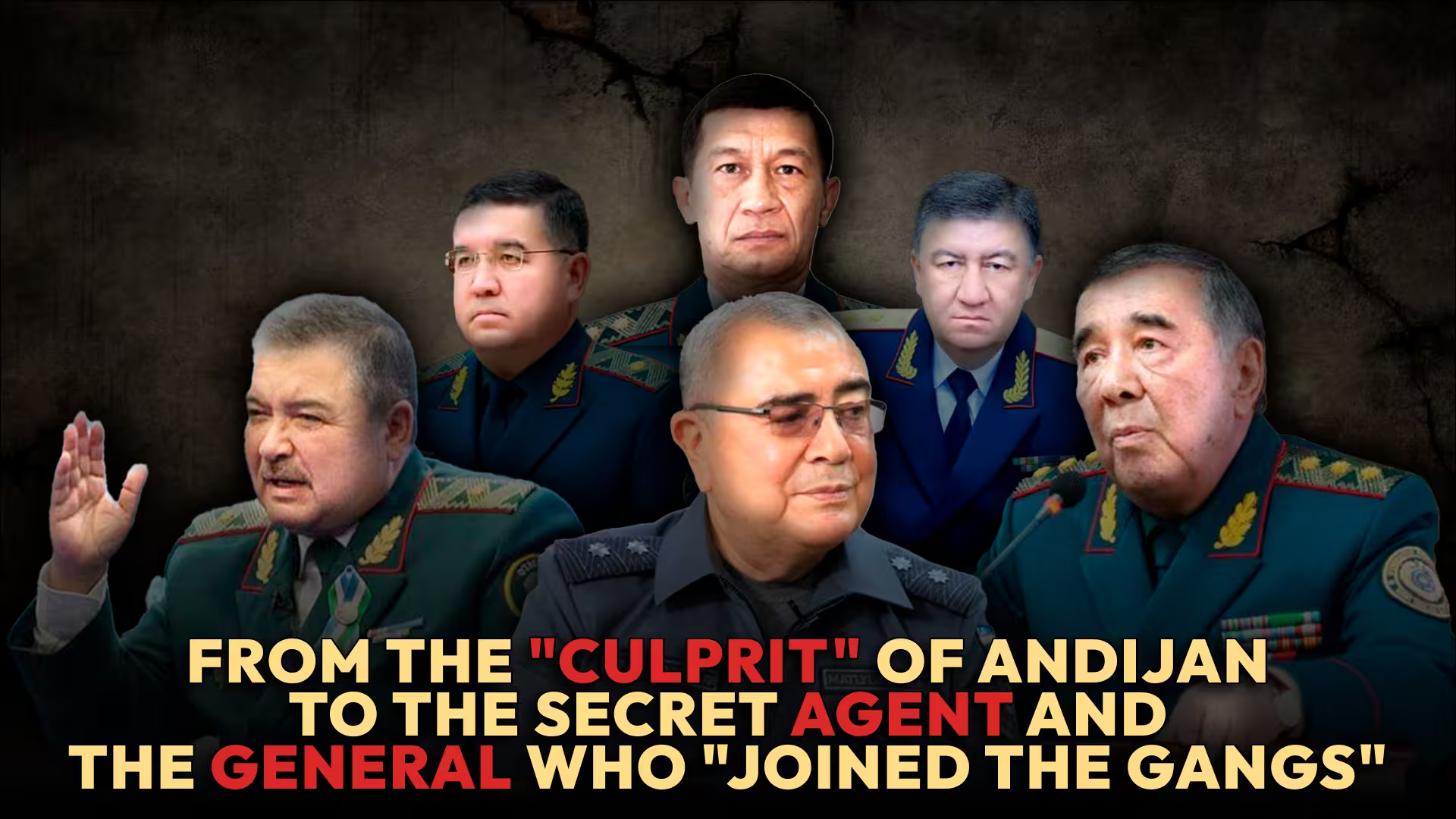
Zokirjon Almatov – Uzbekistan’s First Minister of Internal Affairs
Zokirjon Almatov became the first Minister of Internal Affairs (MIA) of independent Uzbekistan, leading the ministry from September 6, 1991, to January 5, 2006.
Born on October 10, 1949, in the Tashkent region, Almatov studied law at Tashkent State University from 1967 to 1971. He began his career in 1971 as an inspector in the passport department of the Tashkent region’s Internal Affairs Department. Over the years, he rose through the ranks, serving as head of the passport department (1975–1976), deputy head (1976–1983), and later head of the district's Internal Affairs Department. From 1983 to 1991, he led the Tashkent Regional Department of Internal Affairs before being appointed Minister in 1991.
During his tenure, Almatov earned several military ranks, rising from colonel to major general in 1992, lieutenant general in 1996, and finally colonel general in 1999. He was dismissed from his position on January 5, 2006. Since February 27, 2018, he has served as an advisor to the Minister of Internal Affairs.
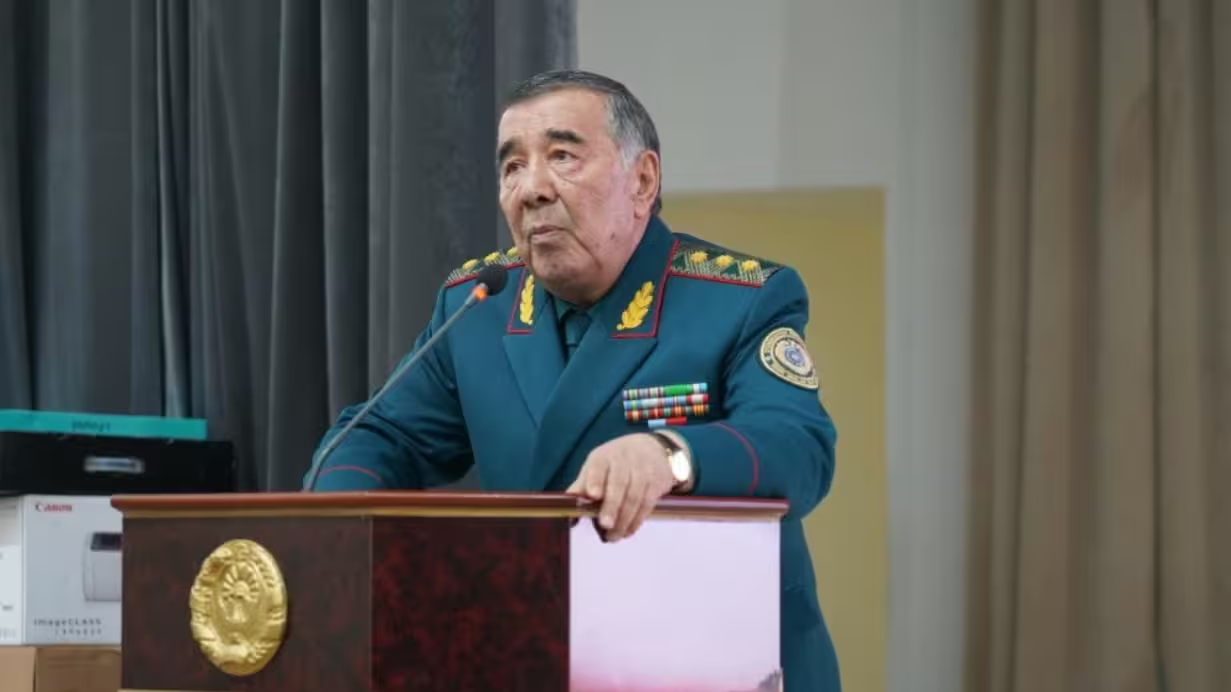
Zokirjon Almatov on the Andijan Events: Was He Responsible?
In a 2020 interview with Kun.uz, former Minister of Internal Affairs Zokirjon Almatov addressed his role in the 2005 Andijan events, acknowledging that he was the chief of staff in the area and made the decision to use force. He stated that he acted as a responsible official to counter what he described as an organized attack, adding that 100 people died in the confrontation, including law enforcement officers and militants.
"I am often criticized and blamed for the Andijan events. I say this openly—yes, I was the chief of staff there, and I made the decision. But who came to Andijan armed? Who crossed the border with weapons? Who attacked a Ministry of Internal Affairs post, seized a military unit's weapons, stormed a pre-trial detention center, and freed over 500 criminals? Who occupied government buildings and set them on fire? Who took about 100 judicial employees hostage, many of whom were later executed? What was the government supposed to do—just stand by?"
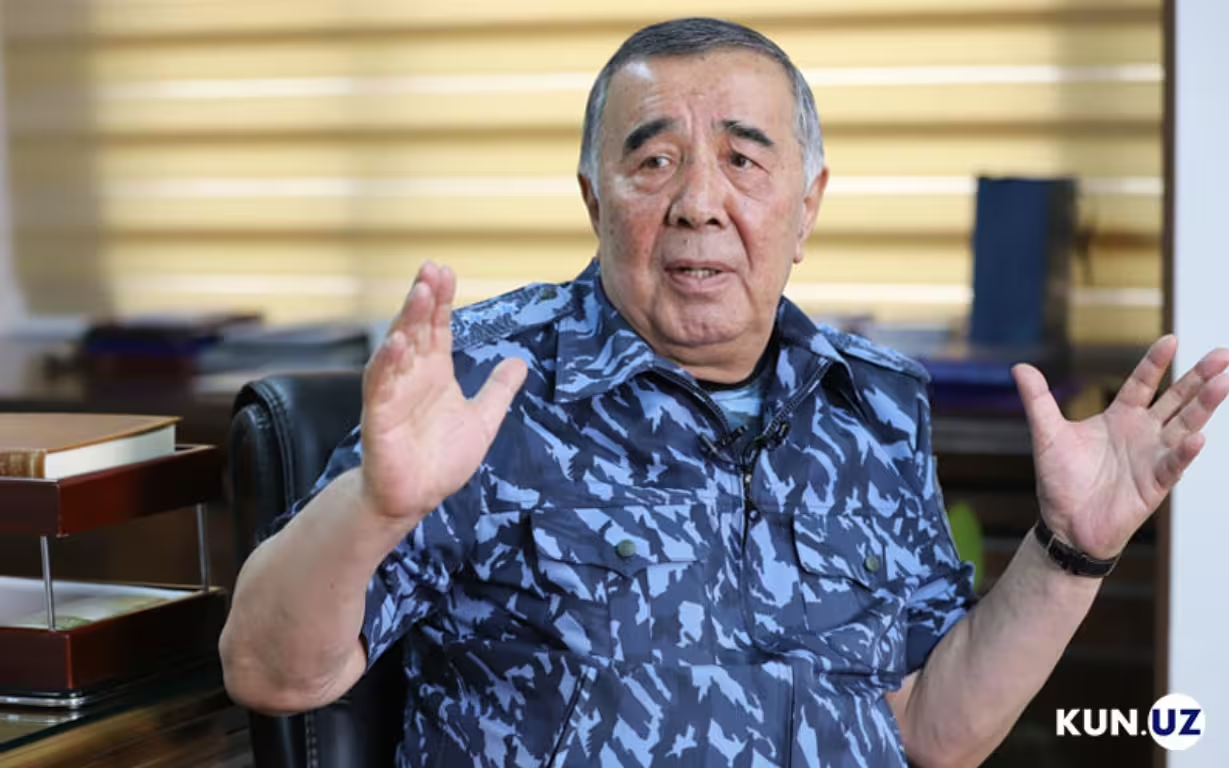
Almatov denied allegations that civilians were deliberately targeted. He claimed that 600–700 family members of those involved were evacuated to Kyrgyzstan before the confrontation began.
"Some say civilians were shot—no. Before the events unfolded, we evacuated their families. When the armed attackers arrived, they shot a military captain. In such a situation, what are soldiers supposed to do? The clash resulted in 100 deaths in one area alone, including both security forces and militants. In total, 187 people were killed. These are the accurate figures, and I speak the truth before God."
Almatov also questioned the presence of about 30 journalists in the Osh region of Kyrgyzstan on the same day, suggesting that the incident was orchestrated to incite unrest in Uzbekistan.
"This was a planned provocation aimed at sparking a civil war in Uzbekistan."
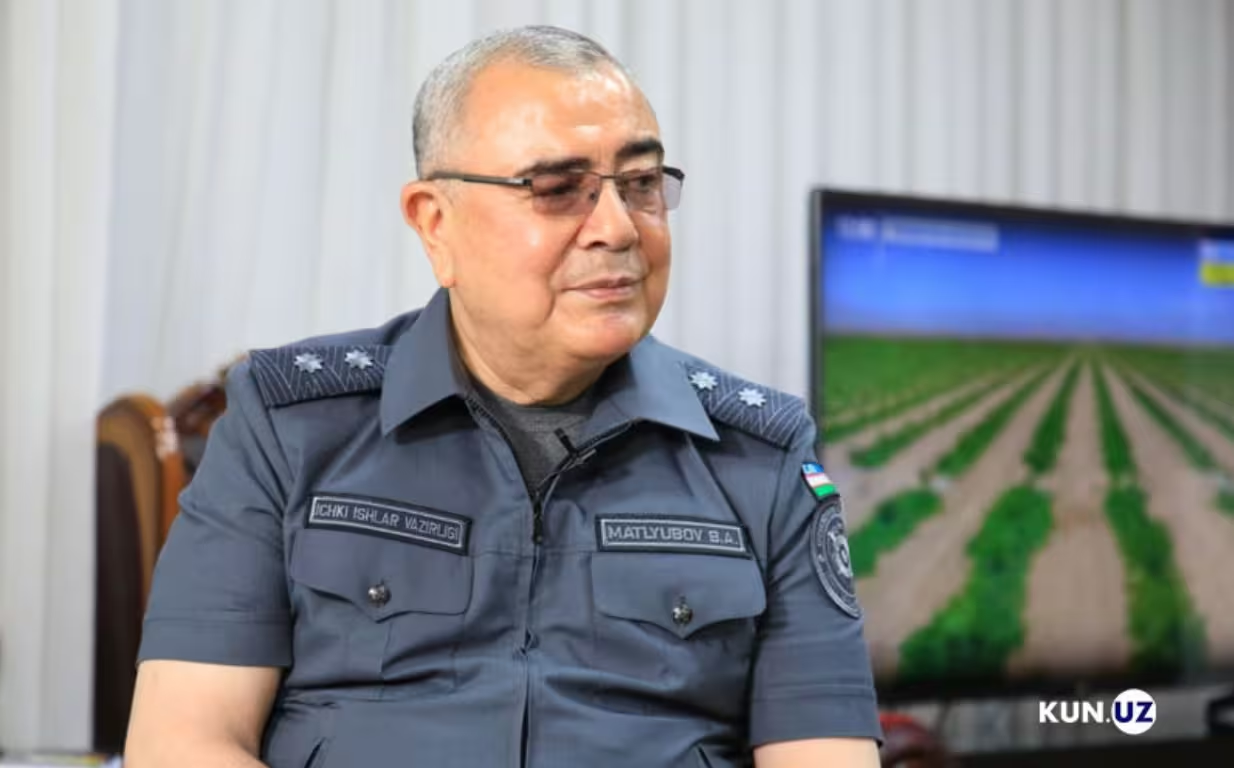
Bakhodir Matlyubov: From Secret Agent to Uzbekistan’s Second Minister of Internal Affairs
Following Zokirjon Almatov’s resignation in 2006 due to health issues, Bakhodir Matlyubov, then Chairman of the State Customs Committee, was appointed as Uzbekistan’s Minister of Internal Affairs. He held the position until 2013.
Born on March 10, 1952, in Samarkand, Matlyubov began his career in 1973 as a senior secret agent in the criminal investigation department of the Samarkand regional MIA. Over the years, he climbed the ranks, serving as deputy head of the regional MIA (1978–1983), head of the Siyob district MIA, and later head of the regional MIA.
From 1997 to 2004, he was the first deputy minister of internal affairs, and in 2004, he became chairman of the State Customs Committee. During his tenure as Minister of Internal Affairs (2006–2013), control of the border troops was transferred from the MIA to the National Security Committee (now the State Security Service). In 2001, he was awarded the rank of Lieutenant General.
Reflecting on the challenges he faced, Matlyubov recalled dealing with riots in Samarkand in 1992.
"A group of people armed with rebar and rubber sticks began smashing windows, starting from the Agricultural University. We surrounded them, confiscated their weapons, and took those involved into custody. But soon, it happened again."
He described another incident where a concert at the “Mudjiza” hall in Registan sparked unrest, primarily involving students from the Agricultural Institute.
"The students didn’t even understand what they were demanding. It was clear that their 'domla' (mentors) from outside were behind it. We had no choice but to use force to control the situation."
As tensions escalated, some students were hospitalized, and officials proposed arresting 10–15 police officers to appease the crowd.
"I took full responsibility. I told them: 'If you don’t arrest two officers today, the rest will stop following orders.' That’s how we defused the situation."
Matlyubov retired in 2013, but in December 2016, he returned to civil service as head of the Academy of the Ministry of Internal Affairs, according to Kun.uz.
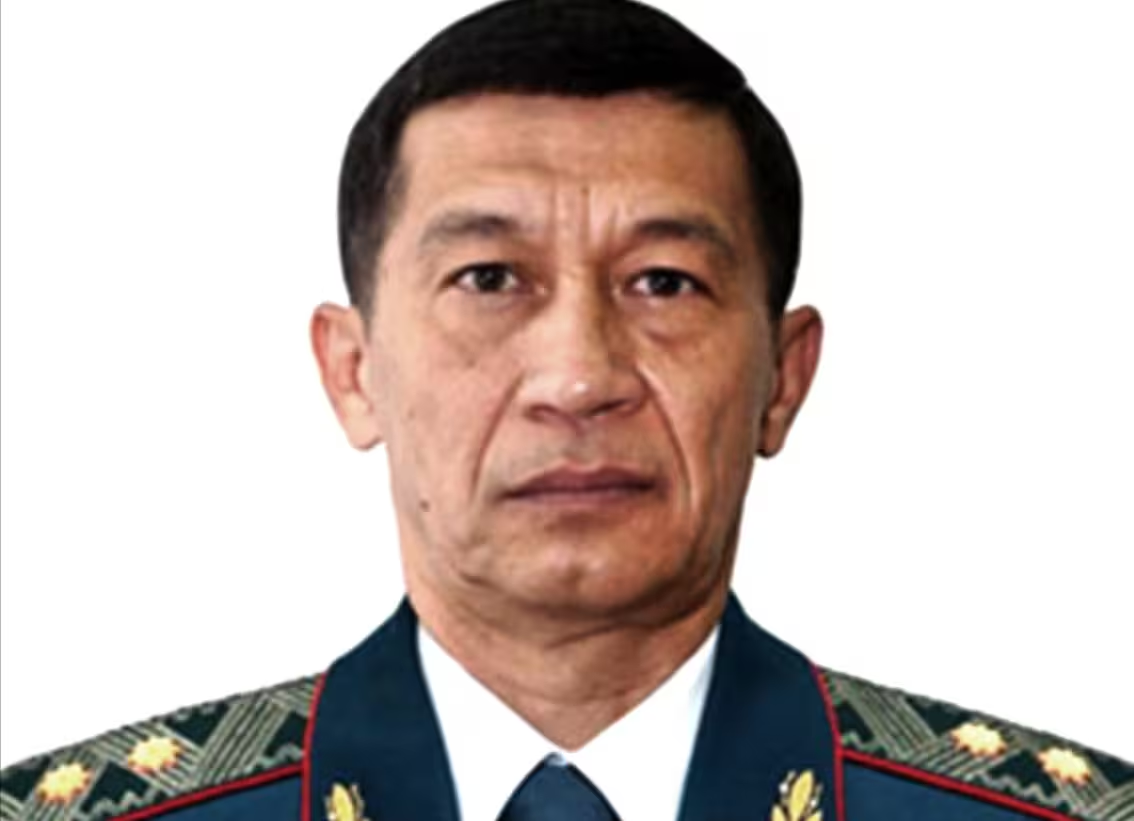
The Minister Who Earned Karimov’s Trust but Faced Mirziyoyev’s Wrath
On December 13, 2013, Uzbekistan’s first president, Islam Karimov, dismissed Bakhodir Matlyubov as Minister of Internal Affairs, appointing Adham Ahmedbaev as his successor.
Born on February 14, 1962, in Tashkent, Ahmedboyev graduated from Tashkent State University in 1988 and later from the Academy of the Ministry of Internal Affairs in 2004. His career began in 1985 as an inspector in Tashkent, before rising through the ranks to become deputy chief of the Tashkent Regional Department of Internal Affairs (1990–2000) and later deputy chief of the Tashkent City Department of Internal Affairs (2000–2004).
Ahmedbaev also held key government positions, including serving in the Presidential Administration (2005–2006)and later as Deputy and First Deputy Minister of Internal Affairs for Financial Issues (2006–2011). In 2017, he briefly worked as State Advisor to the President on Political and Legal Issues before moving to the Academy of the Ministry of Internal Affairs.
“He Joined Some Gangs” — President Mirziyoyev
During his 2017 Address to the Oliy Majlis, President Shavkat Mirziyoyev publicly criticized Ahmedboyev, revealing why he was dismissed. The president accused him of treason and colluding with criminal groups while serving as Minister of Internal Affairs.
"You know that the former Minister of Internal Affairs Ahmedboyev’s general ranks were revoked and where he is now. For his betrayal, his treachery. Since he joined one or two gangs while being the head of the Ministry of Internal Affairs—my conscience did not accept him. I removed two of his generals. He was a lieutenant general!"
Despite these allegations, no further details have been disclosed regarding the specific gangs Ahmedbaev allegedly joined.
From MIA to Defense: The Rise and Fall of Abdusalom Azizov
Following Ahmedbaev’s dismissal, Abdusalom Azizov—then head of the Jizzakh regional Department of Internal Affairs—was appointed Minister of Internal Affairs in early 2017. However, his tenure lasted only eight months before he was reassigned as Minister of Defense in September 2017. His successor was Pulat Bobojonov, the former governor of Khorezm region.
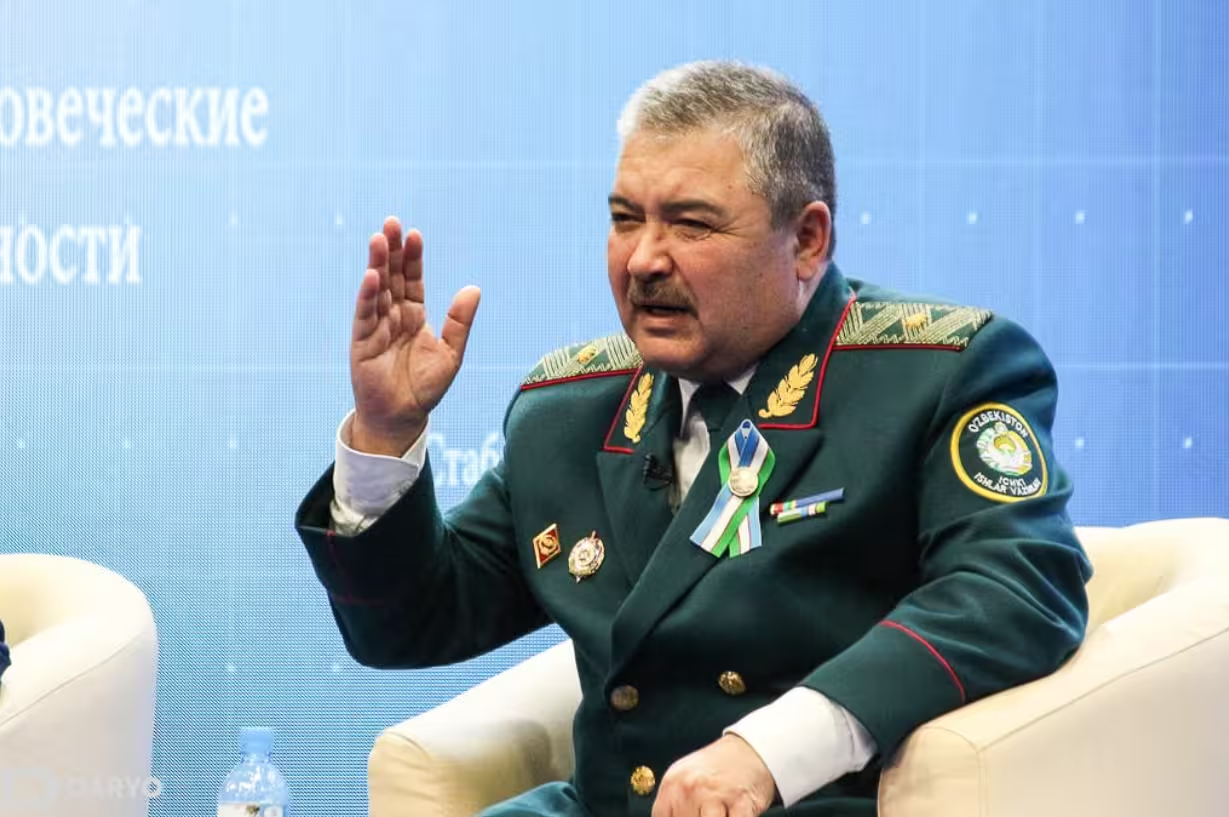
Azizov, born on January 20, 1960, in Tashkent, graduated from the Tashkent Police School (now the Academy of the Ministry of Internal Affairs). He served in various law enforcement and government positions:
- 1982–2001: Rose from inspector to first deputy head of the Central Intelligence Agency.
- 2001–2002: Led the Tashkent City Internal Affairs Department.
- 2002–2006: Served as Chairman of the Board of Uzbekneftegaz.
- 2006–2008: General Director of Uzneftmahsulot (a subsidiary of Uzbekneftegaz).
- 2008: Returned to the MIA system as Deputy Minister.
- 2009: Appointed Head of the Jizzakh Regional Internal Affairs Department.
In 2019, Azizov’s career took a sharp turn. He was appointed Chairman of the State Security Service (SSS), replacing Ikhtiyor Abdullayev, and later assumed the presidency of the Football Association of Uzbekistan, where he vowed to tackle match-fixing and corruption in Uzbek football.
However, his tenure at the SSS ended abruptly on November 23, 2024, following an assassination attempt on Komil Allamjonov. Shortly after, on December 4, 2024, he was appointed Deputy Advisor to the President on Social, Political, Religious, Educational, and Youth Issues, specifically overseeing youth affairs.
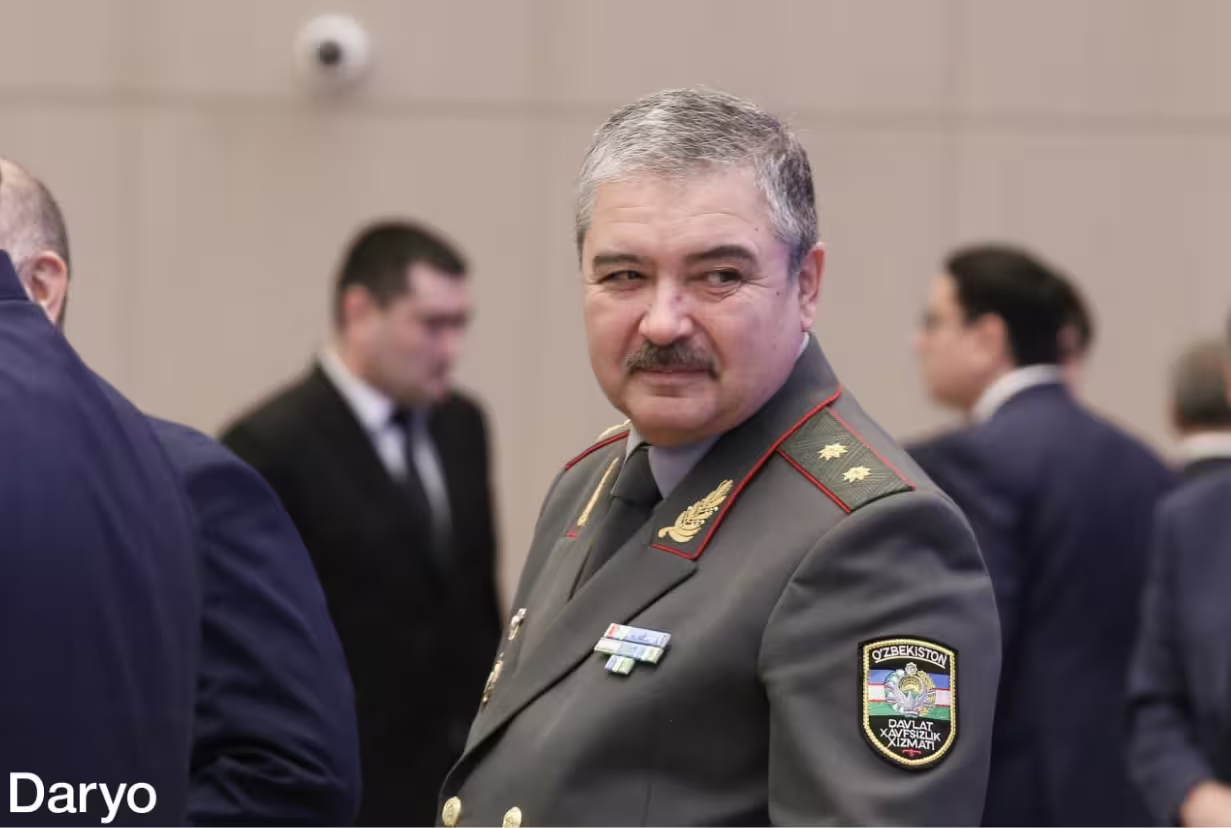
Pulat Bobojonov: Minister During a Challenging Era
The tenure of Pulat Bobojonov as Minister of Internal Affairs was marked by controversy, crisis, and intense scrutiny. His time in office coincided with a period where troubling issues within the Ministry became more visible, including a series of unsettling incidents involving deaths within the Ministry’s buildings. This period saw a spike in media criticism directed at the Ministry’s activities. Some attribute this to Bobojonov's leadership during an era of increased freedom of speech, where issues that had been festering for years finally came to light, while others believe the systemic problems worsened under his watch.
Bobojonov took office on September 4, 2017, after the departure of Abdusalom Azizov, and remained in the role until March 3, 2025.
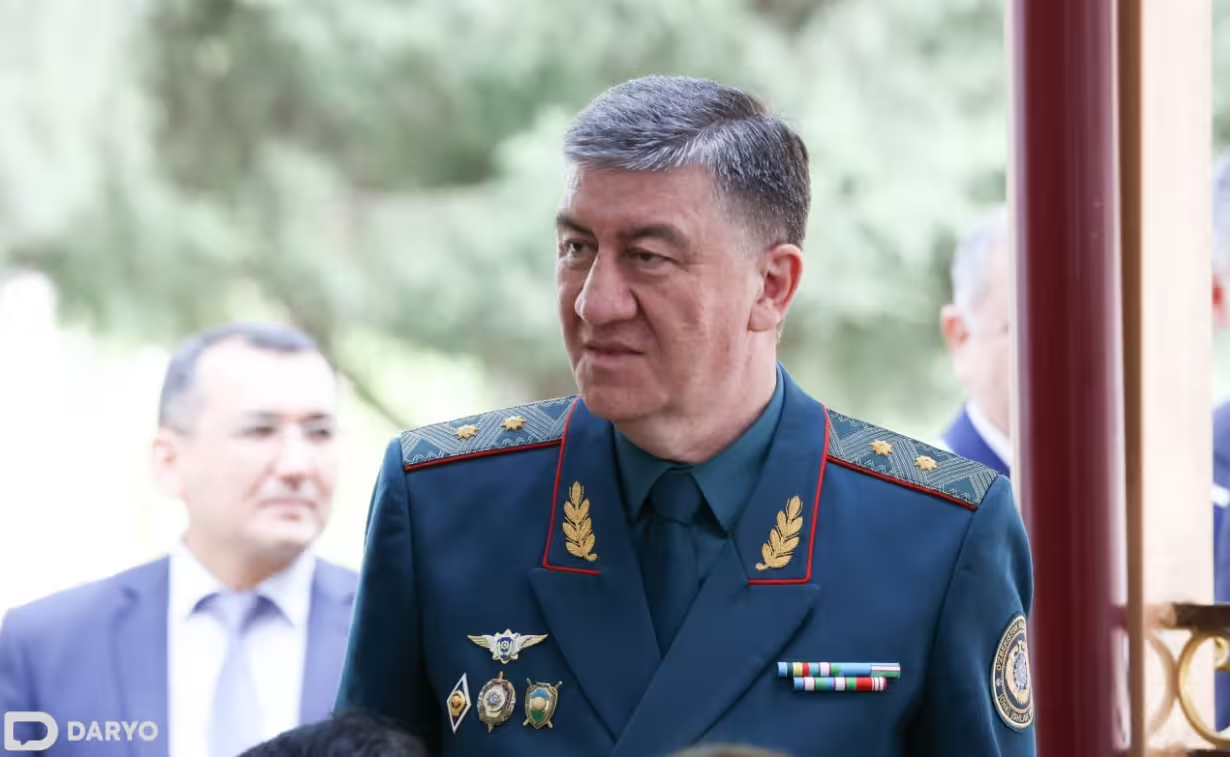
Born on January 1, 1961, in Bogat district, Khorezm region, Bobojonov’s career path was grounded in law and public service. After graduating from the Faculty of Law at Tashkent State University in 1982, he began his career as an assistant prosecutor in the Gurlan district, later becoming the prosecutor of the same district.
From 1992 to 1996, he served as first deputy khokim of the Bogat district, and later as deputy khokim of Khorezm region. In 1999-2000, he worked in the Office of the President of Uzbekistan, and from 2000 to 2005, he served as Deputy Prosecutor General. His later roles included prosecutor of Jizzakh and Bukhara regions, and from 2012, he served as the khokim of Khorezm region.
In recognition of his long service, Bobojonov was awarded the rank of Lieutenant General in 2019, and in 2024, he received the Order of Honor, 1st degree.
Currently serving as Deputy Presidential Advisor, Pulat Bobojonov’s career continues to evolve, contributing to Uzbekistan’s governance and political landscape.
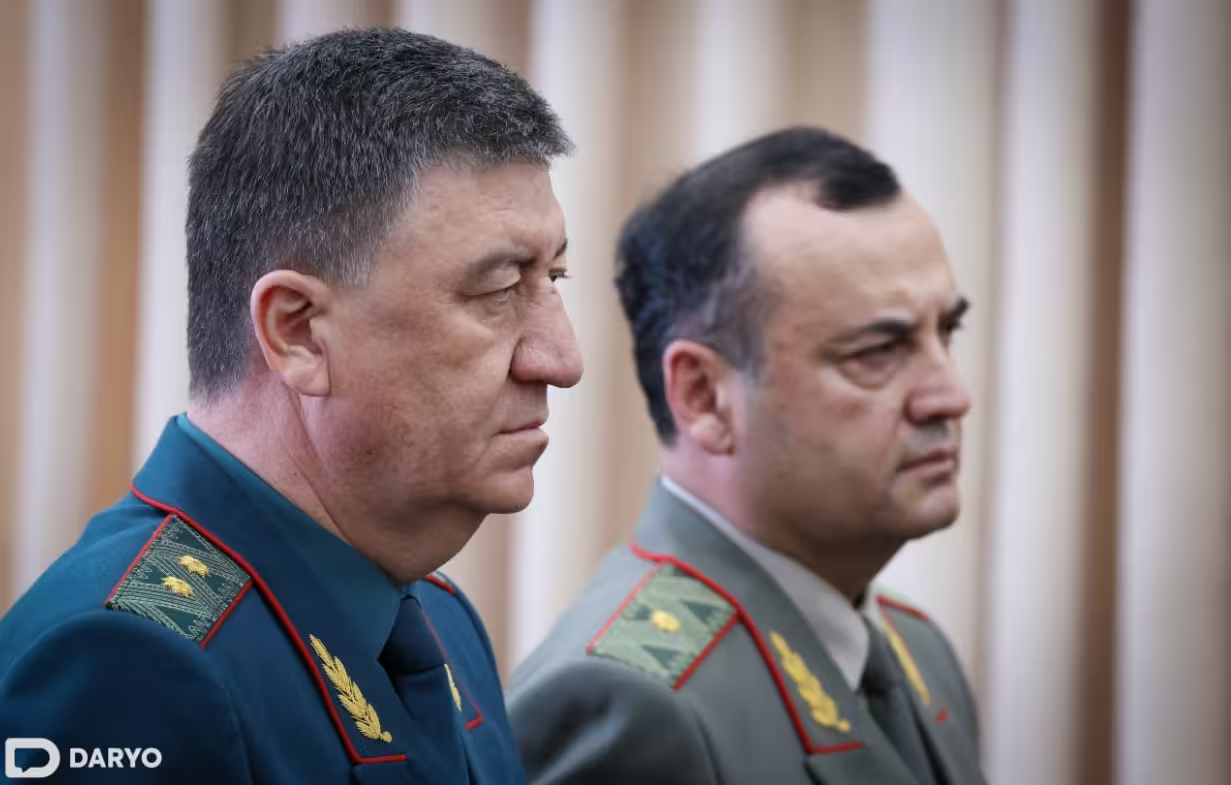
Can Aziz Tashpulatov Restore the People's Trust?
On March 3, 2025, Aziz Tashpulatov was appointed as the sixth Minister of Internal Affairs of Uzbekistan by presidential decree. This marked a significant moment in the history of the Ministry.
Tashpulatov’s career has been marked by steady progression within the Ministry of Internal Affairs. He served as the head of the Namangan Regional Internal Affairs Department from 2015 to 2017, and later as the head of the Samarkand Regional Internal Affairs Department from November 2017 to June 2019.
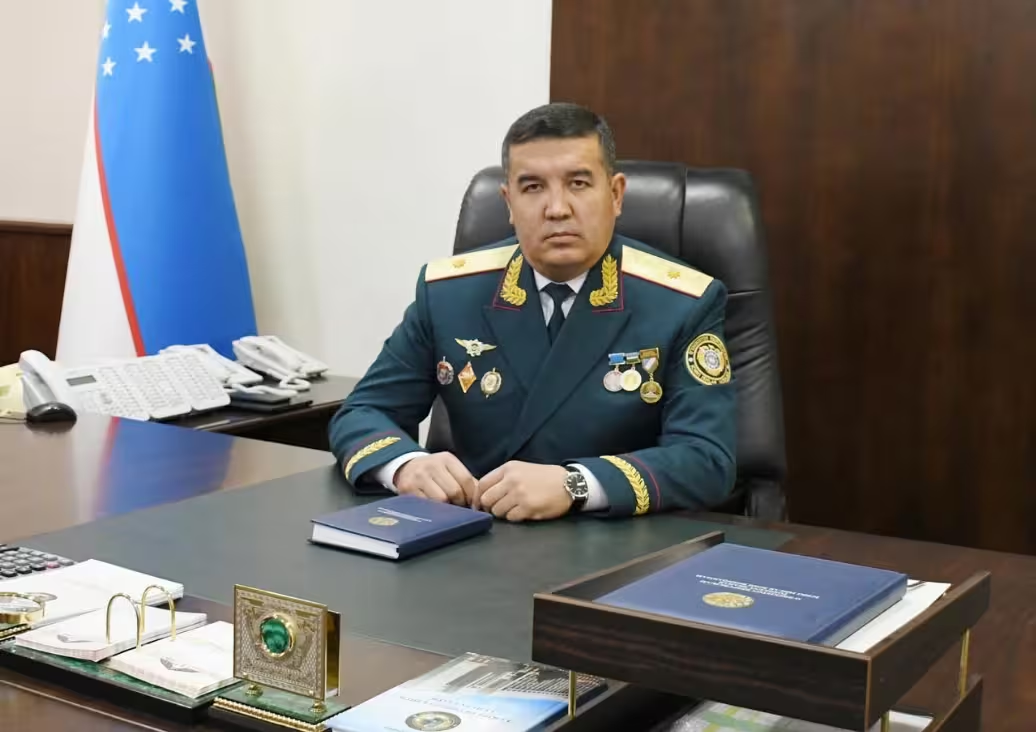
In June 2019, he was appointed First Deputy Minister of Internal Affairs, and since March 2020, he has held the position of Head of the Tashkent City Internal Affairs Department. His dedication and experience were recognized in 2021, when he was awarded the rank of Major General.
Now, as the new Minister, Tashpulatov faces the monumental task of restoring public trust in the internal affairs system. With the Ministry having been under heavy scrutiny in recent years, his ability to rebuild the relationship between the people and law enforcement will be critical. Only time will reveal how effectively he can navigate this challenge and regain the confidence of the Uzbek people.
Follow Daryo's official Instagram and Twitter pages to keep current on world news.

Comments (0)